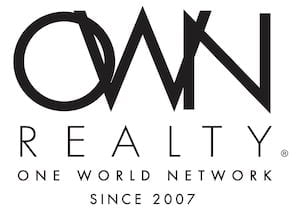1031 Exchange in Nebraska
- Home
- 1031 Exchange in Nebraska
Considering A Tax Deferred 1031 Exchange in Nebraska? We are here to help!
The 1031 exchange, commonly referred to as a tax-deferred exchange, provides a strategic avenue for selling a qualified property and subsequently acquiring another within a specified timeframe. Unlike a traditional sale, where the transaction is straightforward, a “1031 exchange” treats the entire process as an exchange rather than a direct sale.
This unique treatment holds significance as it allows taxpayers to qualify for deferred gain treatment, exempting them from the usual taxation imposed by the IRS on regular sales. The governing legal provision is found in US CODE: Title 26, §1031, specifically addressing the exchange of property held for productive use or investment.
Continuing the exploration of the 1031 exchange landscape in Nebraska, it’s essential to delve into the practical aspects and potential benefits for investors. Nebraska, like other states, imposes its own set of considerations and nuances when engaging in a 1031 exchange. Understanding these specific factors can enhance the effectiveness of the exchange strategy.
Nebraska’s Unique Real Estate Landscape:
Nebraska, with its diverse real estate opportunities, provides investors with a range of property types suitable for a 1031 exchange. Whether it’s agricultural land, commercial properties in bustling urban centers, or residential real estate, the state offers a dynamic market. Investors seeking to capitalize on these opportunities must navigate Nebraska’s regulatory landscape, zoning laws, and local market trends.
Nebraska’s regulatory framework plays a pivotal role in shaping the landscape for real estate transactions, including 1031 exchanges. Investors should familiarize themselves with zoning laws, environmental regulations, and any specific requirements that may impact property use. Understanding these aspects is essential for identifying suitable replacement properties that align with both investment goals and regulatory compliance.
1031 Exchange Strategies in Nebraska:
In crafting a successful 1031 exchange strategy for Nebraska, investors should consider the timing of the transaction, property selection, and compliance with state and federal regulations. The state’s tax structure and any recent legislative changes may also impact the overall tax implications of the exchange.
Given Nebraska’s significant agricultural presence, investors exploring 1031 exchanges involving farmland must be aware of the unique considerations in this sector. Factors such as soil quality, water rights, and compliance with agricultural regulations can significantly influence the success of the exchange. Working closely with professionals experienced in agricultural real estate can provide valuable insights for navigating these complexities.

Navigating State and Federal Tax Implications:
While the 1031 exchange provides a federal tax deferral, it’s crucial to understand how Nebraska’s state tax laws interact with this strategy. Investors must be aware of any state-specific regulations that might affect the deferral of capital gains taxes. Additionally, staying informed about potential changes in state tax rates or regulations is paramount for making informed investment decisions.
The timing of a 1031 exchange in Nebraska is crucial, considering the state’s real estate market dynamics. Monitoring market trends, assessing property values, and understanding the demand for specific types of real estate can impact decision-making. Investors may find opportune moments to enter the market or identify optimal times to divest underperforming assets.
Realizing the Investment Potential:
Beyond the tax advantages, a 1031 exchange in Nebraska can be a strategic tool for optimizing an investment portfolio. Investors can leverage the exchange to upgrade to higher-performing assets, diversify their holdings, or consolidate properties for more efficient management. This strategic approach aligns with the broader goal of enhancing the long-term value of an investment portfolio.
Like any investment, a 1031 exchange involves inherent risks. Nebraska investors should implement risk mitigation strategies, such as thorough due diligence on replacement properties, assessing market conditions, and understanding the potential impact of economic factors. This diligence is essential for optimizing returns and ensuring the long-term success of the real estate investment.
Professional Guidance for Nebraska Investors:
Given the intricacies of real estate transactions and tax laws, seeking professional guidance is a prudent step for investors engaging in a 1031 exchange in Nebraska. Real estate professionals, tax advisors, and legal experts with knowledge of both federal and state regulations can provide valuable insights and ensure compliance throughout the exchange process.
The regulatory landscape, including tax laws, is subject to change. Investors engaged in or considering a 1031 exchange in Nebraska should stay informed about legislative developments that may impact their investment strategy. Proactively adapting to changes in tax codes or regulations can help investors navigate evolving conditions and make informed decisions.
Recognized by the IRS as an effective method to defer capital gain taxes, a comprehensive understanding of the elements and underlying purpose of this tax-deferred transaction is crucial. The pivotal tax code guiding successful exchanges is outlined in Section 1031 of the Internal Revenue Code.
It’s essential to note that the interpretation of the IRS, along with widely accepted standards, regulations, and compliance guidelines, is detailed in the Like-Kind Exchange Regulations issued by the US Department of the Treasury. While these regulations not only embody the law but also reflect the IRS’s interpretation of Section 1031, it’s vital to recognize their dual role.
Why Consider a 1031 Exchange in Nebraska?
For real estate owners and investors, a 1031 exchange in Nebraska presents an IRS-acknowledged strategy for deferring capital gains taxes. Understanding the intricacies and the underlying purpose of this tax-deferred transaction is key. The specific tax code critical for success is outlined in Section 1031 of the Internal Revenue Code.
Interpretations by the IRS and widely accepted standards can be explored in the Like-Kind Exchange Regulations issued by the US Department of the Treasury. This informative resource outlines IRS rules, guidelines, and requirements for executing a 1031 exchange, providing insights beyond mere legal representation.
Successful 1031 exchanges in Nebraska often involve collaboration with a network of professionals, including real estate agents, tax advisors, legal experts, and qualified intermediaries. Leveraging their collective expertise can streamline the exchange process, enhance due diligence efforts, and ensure compliance with both state and federal regulations.

The Significance of a 1031 Exchange:
Property owners and real estate investors contemplating the acquisition of a replacement “like-kind” property in Nebraska following the sale of an existing investment property should seriously consider a 1031 exchange. Failing to do so may result in the obligation to pay a capital gains tax, presently at 15%, but potentially escalating to 20% in the future.
In executing a 1031 exchange, it’s imperative to factor in both federal and state tax rates specific to Nebraska. The primary motivation for pursuing a 1031 exchange lies in the IRS’s depreciation of capital real estate investments at a rate of 3% per year, applicable as long as you hold the investment until it is fully depreciated.
Nebraska offers a diverse real estate landscape for investors engaging in 1031 exchanges. Navigating this landscape effectively requires a comprehensive understanding of the state’s regulatory environment, market dynamics, and potential challenges specific to certain property types.
Through careful planning, strategic decision-making, and collaboration with experienced professionals, investors can maximize the benefits of a 1031 exchange in Nebraska and position themselves for long-term success in the dynamic real estate market.
Upon selling the capital asset, the IRS seeks to levy taxes on the depreciated portion as income tax, aligning with the marginal tax rate. For instance, if you’ve held an investment for 15 years, resulting in a 45% depreciation, and the combined state and federal taxes amount to 35% at the marginal rate, this translates to approximately 15% of the property’s cost (one-third of the 45%).
If your property is fully depreciated, the entire 35% marginal tax rate applies. Another perspective emphasizes that without the advantage of a 1031 exchange, purchasing a replacement property diminishes your purchasing power to approximately 70-80% of its previous value before the exchange and tax payment.
A 1031 exchange in Nebraska represents a valuable opportunity for real estate investors to optimize their portfolios, defer capital gains taxes, and navigate the complexities of the state’s real estate market. As with any investment strategy, thorough research, careful planning, and collaboration with knowledgeable professionals are integral to achieving successful outcomes.
Discover Your Path to Wealth Preservation
Power of 1031 Exchanges
Are you ready to embark on a financial journey that could reshape your real estate investments? Look no further! At Sapphire Investment Solutions, we specialize in turning the complex world of 1031 exchanges into a streamlined, wealth-building opportunity.


 Call us today:
Call us today: